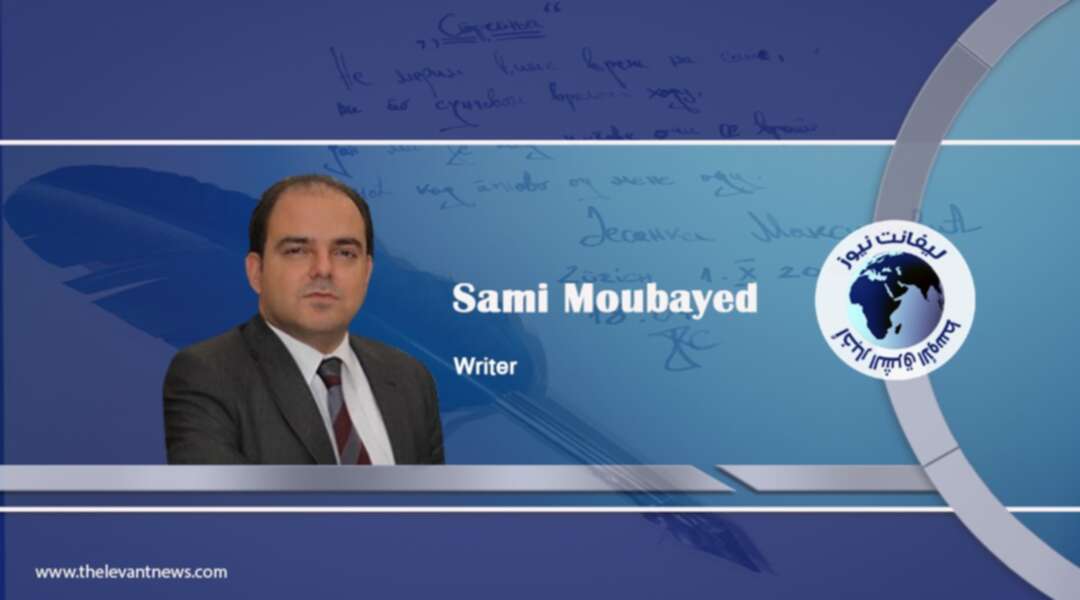-
Where will Erdogan strike next in Syria?

” Marching on the Kurds in order to dismantle their positions would be easier said than done however, if he does not receive a green light either from Russian President Vladimir Putin or from President Joe Biden. Both, however, are unhappy with their Turkish counterpart’s ambitions, which seem to have no bounds, and neither seems enthusiastic on supporting him. When meeting Biden last on the margins of the G20 Summit last month, Erdogan asked for specific approval to march into Syria. That approval never came.
Potential Turkish targets
One possible target would be the town of Manbij, west of the Euphrates River, which has been held by the Kurds since they liberated it from ISIS back in August 2016. Another is Ayn Arab, also known by its Kurdish name “Kobani,” situated immediately south of the Syrian-Turkish border. It too suffered from ISIS occupation in 2014-2015, before it was also liberated by the Kurds who invited Syrian troops into the city in October 2019 to ward off a potential Turkish invasion. It has been on Erdogan’s “wish list” for years. A third option is the town of Tel Rifaat, 40-km north of Aleppo, where the Turkish leader claims Kurdish separatists have been based since fleeing the city of Afrin back in 2018. He also says that the attack against Turkish troops in mid-October came from Tel Rifaat, promising revenge. Syrian troops have already been sent to Tel Rifaat, fearing an upcoming attack after Turkish airplanes dropped leaflets on the city last month, asking its residents to cooperate with the Turkish Army.
Swap deals no more?
Since the Russian Army entered the Syrian battlefield back in September 2015, Erdogan has been in the habit of “swap deals” with Vladimir Putin. In 2016, he marched on the cities of al-Bab and Afrin, in exchange for abandoning his ambitions in Aleppo. Two years later, he overran Afrin while turning a blind eye to Syrian and Russian troops re-taking East Gouta in the Damascus countryside. He now hopes that he can carry out a similar territorial swap, perhaps abandoning his proxies south of Idlib, in exchange for a green light to march on Tel Rifaat, Manbij, or Kobani. Only this time, Putin doesn’t seem ready for such a deal, demanding nothing less than all of Idlib. In early 2020, the two presidents quarreled over different interpretations of the Sochi Agreement of 2018.
Putin had specifically asked Erdogan to cleanse Idlib from Hayat Tahrir al-Sham (HTS), the al-Qaeda affiliate formerly known as Jabhat al-Nusra. Erdogan promised to finish the job by October 2018, but he missed that deadline, and all of its extensions, after refusing to send his proxies into war in Idlib. He needed them elsewhere in the Syrian northeast, for battles against the Kurds. In response to Erdogan’s no delivery, the Russians gave their Syrian proxies a green light to march into the Idlib province, where they came into direct confrontation with the Turks and managed to take back strategic cities and towns like Khan Sheikhoun. In March 2020, the two leaders sat down to talk and Erdogan accepted the recent gains of the Syrian Army, thereby abandoning claims to these areas, and once again, pledged to live up to his promises in Idlib in exchange for expanding Turkish checkpoints in Syria. Twenty months down the road, Idlib remains in the hands of HTS.
A worrying Arab rapprochement for Erdogan
From his office in Ankara, the Turkish President is watching the steady Arab rapprochement with Syrian President Bashar al-Assad, mirrored most recently with the landmark visit of UAE Foreign Minister Abdullah Bin Zayed to Damascus on 9 November. Most pundits claim that this embrace aims at challenging Iranian influence in Syria but Erdogan realizes that a more realistic objective is to create a united Arab front against his ambitions in Syria. Both the UAE and Saudi Arabia see him as no less of a threat than Iran and they have often used Syria’s Kurds to obstruct his military schemes.
Negotiations are presently underway between the Syrian Democratic Council (SDC) and Damascus, hoping to settle disputes ahead of an expected Turkish invasion. They seem to be backed by major Arab states like the UAE and Egypt who have taken a keen interest in Syria’s Kurdish component, using it to ward off Turkish ambitions. Last week, the Saudi daily Alsharq Alawsat reported that the SDC had offered the Syrian government 75% of oil revenue from towns and cities under its control, although Damascus is insisting on nothing less than full control of the oil wells. Negotiations are also underway to merge the military wing of the SDC, known as the Syrian Democratic Forces (SDF), into the Syrian Army. The Kurds have agreed to that, conditioning that their troops are confined only to Kurdish-majority cities and towns, rather than being deployed in different parts of the country.
Although the Kurds have received assurances that the Americans will not abandon them as they did recently with Afghanistan, many take that pledge with a grain of salt. At least twice before, former President Donald Trump had announced his intention to withdraw troops from Syria, which would have spelled out certain disaster for the country’s Kurds, who rely heavily on the Americans for arms and protection.
Trump backed down at the very last minute, but there is nothing to prevent Joe Biden from taking a similar decision, as he prepares to disengage military from the Middle East. After Afghanistan, he reached an agreement with Prime Minister Mustapha al-Kadhimi to withdraw combat troops from Iraq by next December, sending shivers down the spine of Syrian Kurds.
For that reason, they are actively searching for new allies among Saudi Arabia, Egypt, and the UAE. All three countries are eager to play that role, themselves actively searching for a threshold in Syria that would put them on equal footing with Iran, Russia, and Turkey. What they will offer Damascus in exchange for a deal with the Kurds is yet to be seen, and it might include normalization and return to the Arab League. But whatever offer they have to make needs to be quick and concrete, before Erdogan puts his words into action and bits off yet another chunk of Syrian territory.
by: Sami Moubayed

You May Also Like
Popular Posts
Caricature
BENEFIT Sponsors BuildHer...
- April 23, 2025
BENEFIT, the Kingdom’s innovator and leading company in Fintech and electronic financial transactions service, has sponsored the BuildHer CityHack 2025 Hackathon, a two-day event spearheaded by the College of Engineering and Technology at the Royal University for Women (RUW).
Aimed at secondary school students, the event brought together a distinguished group of academic professionals and technology experts to mentor and inspire young participants.
More than 100 high school students from across the Kingdom of Bahrain took part in the hackathon, which featured an intensive programme of training workshops and hands-on sessions. These activities were tailored to enhance participants’ critical thinking, collaborative problem-solving, and team-building capabilities, while also encouraging the development of practical and sustainable solutions to contemporary challenges using modern technological tools.
BENEFIT’s Chief Executive Mr. Abdulwahed AlJanahi, commented: “Our support for this educational hackathon reflects our long-term strategic vision to nurture the talents of emerging national youth and empower the next generation of accomplished female leaders in technology. By fostering creativity and innovation, we aim to contribute meaningfully to Bahrain’s comprehensive development goals and align with the aspirations outlined in the Kingdom’s Vision 2030—an ambition in which BENEFIT plays a central role.”
Professor Riyadh Yousif Hamzah, President of the Royal University for Women, commented: “This initiative reflects our commitment to advancing women in STEM fields. We're cultivating a generation of creative, solution-driven female leaders who will drive national development. Our partnership with BENEFIT exemplifies the powerful synergy between academia and private sector in supporting educational innovation.”
Hanan Abdulla Hasan, Senior Manager, PR & Communication at BENEFIT, said: “We are honoured to collaborate with RUW in supporting this remarkable technology-focused event. It highlights our commitment to social responsibility, and our ongoing efforts to enhance the digital and innovation capabilities of young Bahraini women and foster their ability to harness technological tools in the service of a smarter, more sustainable future.”
For his part, Dr. Humam ElAgha, Acting Dean of the College of Engineering and Technology at the University, said: “BuildHer CityHack 2025 embodies our hands-on approach to education. By tackling real-world problems through creative thinking and sustainable solutions, we're preparing women to thrive in the knowledge economy – a cornerstone of the University's vision.”
opinion
Report
ads
Newsletter
Subscribe to our mailing list to get the new updates!




















